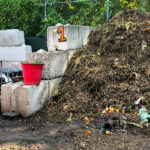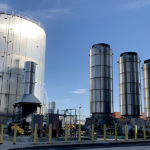Top: Image courtesy Industrious Labs
A new advocacy organization, Full Circle Future, was launched in late July to “advance equitable solutions to one of the biggest climate and public health opportunities of our time — organic waste.” Founded by Industrious Labs, a network of strategists and others who create campaigns to “put climate solutions to work,” Full Circle Future partners with organizations, policymakers, coalitions, and communities to advance strategic and equitable solutions to big waste problems. “Landfills are literally out of sight, but for policymakers and advocates seeking solutions to our biggest problems, they should be top of mind,” explains Katherine Blauvelt, Executive Director of Full Circle Future. “The solutions are here — they’re proven, cost-effective, and ready to scale. With the right investments and smart leadership, we can make the air safer to breathe, save people money, create good-paying local jobs, and build a regenerative waste system that serves people. That’s the full circle future we’re committed to — and the momentum is only growing.”
To coincide with its launch, Full Circle Future released an interactive Waste Impact Tracker, empowering people across all 50 states to explore pollution data by state, county, or individual landfill and learn how to support solutions in their own communities. The data highlights the significant public health and climate risks posed by over 2,600 municipal solid waste (MSW) landfills. Across the United States, estimated methane emissions from MSW landfills in 2023 were equivalent to greenhouse gas emissions from 59 million gasoline-powered passenger vehicles driven for one year. The Waste Impact Tracker also exposes the stark reality of landfill pollution’s unequal burden. “A deeply entrenched history of environmental racism and injustice means that Black and Indigenous people, people of color, and people with low household incomes are disproportionately likely to live in the shadow of a landfill,” notes Blauvelt. “In North Carolina, for example, 80% of MSW landfills are located near communities where the proportion of low-income households exceeds the state average.”













